The 2014 film controversially reinstated the radical legacy of Rev. Dr. Martin Luther King Jr., where he spoke out against war and poverty and was marginalized by the political establishment as a result. This review of Ava DuVernay’s Selma is by Zaid Jilani.
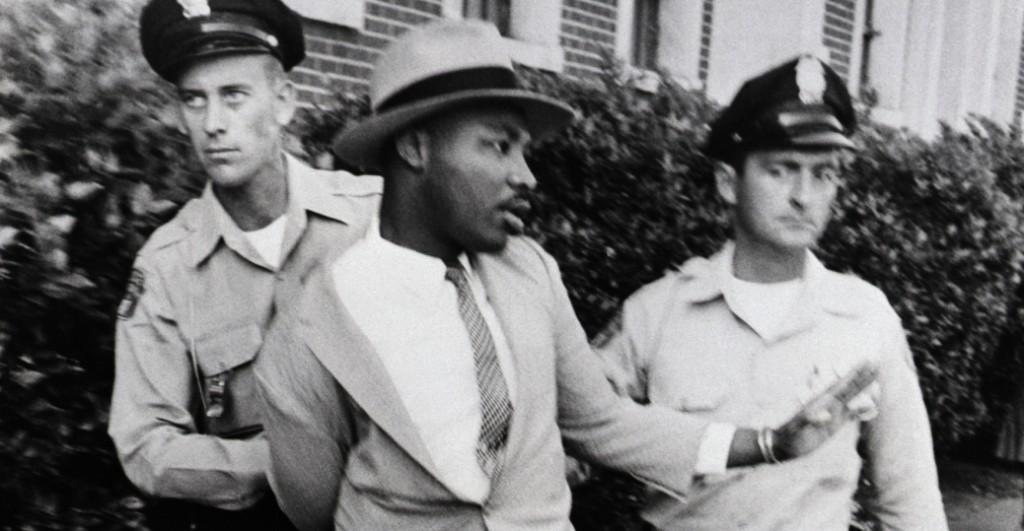

‘Selma’ Portrays the True Martin Luther King Jr: A Radical Despised by the Political Establishment
By Zaid Jilani, Published in AlterNet
As Selma opens in a number of cities on Christmas 2014 and expands to nationwide release in a couple of weeks, the country is given a chance to assess the legacy of Dr. Martin Luther King Jr. and the civil rights movement. Doing so is particularly relevant right now, in light of boisterous protests against police brutality that have been going on since the summer.
Selma has won nearly unanimous praise from film critics – it is currently perched at 100% on Rotten Tomatoes with dozens of reviews in – partly for its unflinching look at King as a true radical who upset not just a fringe of racists in the South, but the entire political establishment. Writing in Time Magazine, nonprofit leader Salamishah Tillet praises the film for reclaiming “Hollywood’s sanitized versions” of Dr. King as simply part of a “simple story of American racial progress.”
In the conventional wisdom, King was a beloved figure who worked with national politicians to defeat a fringe group of Southern racists; Selma upends this narrative by showing King facing off not only with Alabama governor George Wallace but also the Democratic president Lyndon Baines Johnson and his FBI director J. Edgar Hoover. King, and all those who stood alongside him in the demonstrations in the South, are shown not as conciliators looking to simply make racial harmony through dialogue, but as both agitators and lawbreakers – in the most righteous ways.
Selma’s portrayal has irked some, like Mark K. Updegrove, the director of the LBJ presidential library. He writes that the film engages in a “mischaracterization” of the King-LBJ relationship, and that “LBJ and MLK were close partners in reform.”
The truth is that MLK’s movement created even greater hostility among the political class than the film portrays.
“Never, never be afraid to do what’s right, especially if the well-being of a person or animal is at stake. Society’s punishments are small compared to the wounds we inflict on our soul when we look the other way.” — Martin Luther King Jr.
httpvh://youtu.be/aL4FOvIf7G8
Conclusion of the famous “I’ve Been to the Mountaintop” speech, MLK’s Last, Memphis, TN, April 3, 1968
MLK vs. the FBI
One of the film’s themes is the conflicts between organized law enforcement and King. In the trailer, King jokes while sitting in jail, “This cell is probably bugged.”
The FBI aggressively monitored King and other civil rights leaders, fearing their radicalism. “We loved the FBI,” joked Andrew Young at an event at the University of Georgia I once attended. “Because we never kept notes and they recorded everything.” Between the years 1963 and 1965, the FBI bugged at least 14 hotel rooms King stayed in, looking for “information concerning King’s personal activities” in an attempt to “discredit him.”
Hoover called King the “most notorious liar in the country”; simultaneously, the FBI sent the civil rights leader a letter threatening to expose extramarital affairs – the letter closed with the words, “King, there is only one thing left for you to do. You know what it is…You are done. There is but one way out for you. You better take it before your filthy, abnormal fraudulent self is bared to the nation.” This has widely been interpreted as an FBI attempt to inculcate suicidal tendencies in King.
Why did the FBI wage such a campaign against King? Because the political leaders it worked for viewed him as politically polarizing at best and dangerous to the political order at worst.
On “Bloody Sunday,” March 7, 1965, some 600 civil rights marchers headed east out of Selma on U.S. Route 80. They got only as far as the Edmund Pettus Bridge six blocks away, where state and local lawmen attacked them with billy clubs and tear gas and drove them back into Selma. Two days later on March 9, Martin Luther King, Jr. led a “symbolic” march to the bridge. Then civil rights leaders sought court protection for a third, full-scale march from Selma to the state capitol in Montgomery. On Sunday, March 21, about 3,200 marchers set out for Montgomery, walking 12 miles a day and sleeping in fields. By the time they reached the capitol on Thursday, March 25, they were 25,000-strong. Less than five months after the last of the three marches, President Lyndon Johnson signed the Voting Rights Act of 1965–the best possible redress of grievances. — National Park Service
STORY: March on Washington: Demonstration for Freedom Continues
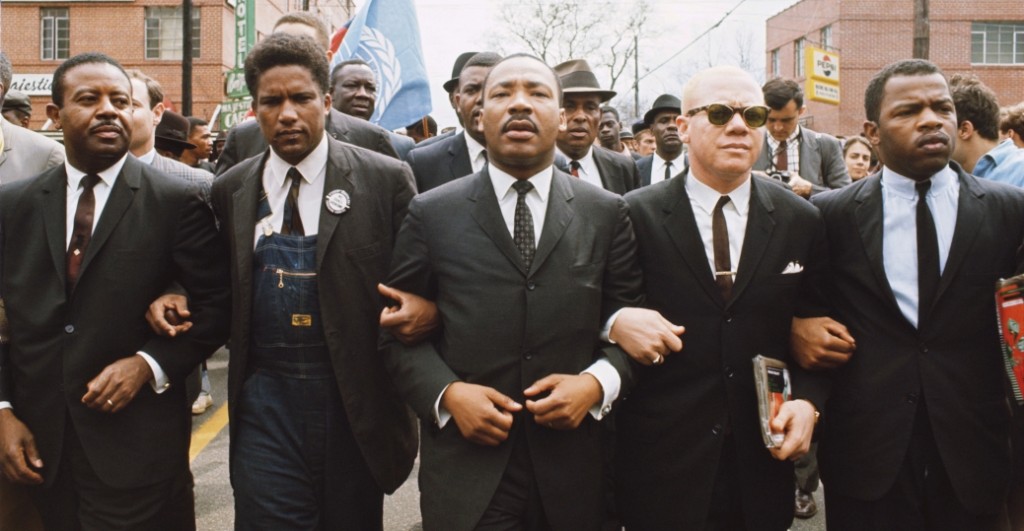

JFK Worried King Was His “Marx”
John and Robert Kennedy are today viewed as standard bearers of Democrat liberalism, but in King’s day their support for civil rights was mixed at best. They belonged to a Democratic Party that valued its Southern power structure, a source of solid votes and organizers. In May 1963 JFK held a meeting on the civil rights movement, and he aired his complaints about King openly, worrying that he looked like a Marxist radical:
I think we ought to have some of these other meetings before we have it in the King group; otherwise, the meetings will look like they got me to do it. … The trouble with King is, everybody thinks he’s our boy anyway. So everything he does, everybody says we stuck him in there. So we ought to have him well surrounded. … I think we ought to have a good many others. King is so hot these days that it looks like Marx coming to the White House, I should have—I’d like to have at least some Southern governors or mayors or businessmen in first. And my program should have gone up to the Hill first.
Robert Kennedy was Attorney General, and on JFK’s orders in 1963 he authorized wiretaps of King’s personal residence. The Kennedys and JFK wanted King to sever ties with Stanley Levison, a Jewish attorney who helped organize the Montgomery bus boycotts. To the FBI, Levison was simply a Communist sympathizer, and by extension, King was engaging in borderline-seditious activities by enlisting his help. King’s refusal to throw Levison was key to White House’s authorization of the wiretaps, part of a larger campaign against leftists that took place in the backdrop of the Cold War.
The cascade of propaganda from the FBI certainly won over JFK’s wife, Jackie. In a series of oral interviews recently released, she is recorded as saying, “I just can’t see a picture of Martin Luther King without thinking, you know, that man’s terrible.”
httpvh://youtu.be/j8d-IYSM-08
Dr. King’s “The Three Evils of Society, War, Racism and Poverty” Speech, National Conference for New Politics in 1967
King Loses Johnson and Entire Political Establishment By Standing For Peace
For years, King cultivated a close relationship with LBJ, knowing he was essential to the passage of the landmark Civil Rights Act. Indeed, the two spent many hours meeting not only in person but frequently talked on the phone. In a phone call shortly after LBJ took power following JFK’s assassination, the president assured King of his support for his civil rights causes.
Yet even though LBJ pledged his support for the overall goal, the two often clashed over how quickly change could come about. For example, King wanted the 1964 Democratic convention to recognize only the integrated Mississippi Democratic Freedom Party; Johnson feared doing so would lose Southern votes and opposed the move. Also at the convention, one of those Mississippi activists, Fannie Lou Hamer, spoke passionately about her own mistreatment and the murders of civil rights workers. Johnson didn’t want her message to make headlines about the Democratic Party, so he called a press conference to try to divert news attention away from her. Like JFK, LBJ desperately wanted to avoid alienating racist whites whose votes the Democratic Party sought.
If King’s anti-racist campaigns in the South did much to alienate the FBI and JFK, it was his eventual turn against the Vietnam War that finally lost him the rest of the political establishment, including not only LBJ but also many within the civil rights movement itself.
“Here you have the first film about King, and some people are coming in and saying, ‘The story is really about the white people,’ ” said Gary May, a professor at the University of Delaware and the author of “Bending Toward Justice: The Voting Rights Act and the Transformation of American Democracy”. “In historical truth, the story was really about everybody.”
In early phone calls with LBJ, King would raise the issue of Vietnam, only to be rebuffed in his warnings about the war. Eventually, MLK grew so impatient with Johnson that he gave a marquee speech at Riverside Church in New York City blasting the war (ironically Levison, whose radicalism brought about King’s FBI suspicion, told him not to give the address).
In the speech, King called the U.S. Government the “greatest purveyor of violence on earth,” and quoted a U.S. official who said America was on the “wrong side of a world revolution.” He called for comprehensive peace talks aimed at removing American forces from Vietnam and ending the bombing campaigns. The real target of progressive campaigners, he declared, needed to be three evils: racism, materialism, and militarism.
The response to King from the political class was apoplectic. The New York Times editorial board, run by liberal northerners allied to the Democrats, blasted King for linking the war in Vietnam to the struggle for civil rights and poverty alleviation at home, saying it was “too facile a connection” and that the comparison was doing a “disservice” to both causes; it also accused him of “slander” for accusing the United States’ use of chemical weapons in Vietnam and comparing them to the “new medicine and new tortures in the concentration camps of Europe.” It concluded, “There are no simple or easy answers to the war in Vietnam or to racial injustice in this country.”
“A nation that continues year after year to spend more money on military defense than on programs of social uplift is approaching spiritual doom.” — Martin Luther King, Jr.
httpvh://youtu.be/OC1Ru2p8OfU
Rev. Martin Luther King, Jr. – April 4, 1967 – Beyond Vietnam: A Time To Break Silence, Riverside Church, NYC
Many of King’s fellow civil rights leaders refused to join his anti-war stance. This stance also put MLK on the opposite side of the US labor unions, to whom the war meant good wages and job security. But it was the civil rights movement that provided the most internal fury over King’s antiwar turn. In 1965, the head of the NAACP Roy Wilkins refused to allow a resolution on the Vietnam War to be voted on during the organization’s national convention; Whitney Young of the National Urban League told King that “Johnson needs a consensus…if we are not with him on Vietnam, then he is not going to be with us on civil rights.” When the Southern Nonviolent Coordinating Committee (SNCC), the youth arm of the civil rights movement, compared the death of a civil rights activist in 1966 to the U.S. violations of international law during the Vietnam War, Wilkins moved to dissociate the NAACP with SNCC – an attempt to win the Johnson administration after it reacted with fury to SNCC endorsing draft resistance.
By the summer of 1967, a third of the staff of King’s Southern Christian Leadership Council “had to be laid off because of a lack of funds.” 168 major newspapers denounced King’s stance, and Johnson disinvited him from the White House permanently.
This total alienation from the political class did not stop King. He spent the last years of his life devoted to a cause few associate him with: labor activism.
The Poor People’s Campaign
In November 1967, King devised what he called the “Poor People’s Campaign,” designed to be “the beginning of a new co-operation, understanding, and a determination by poor people of all colors and backgrounds to assert and win their right to a decent life and respect for their culture and dignity.”
It was this campaign that brought him to Tennessee where he was tragically assassinated while campaigning for striking sanitation workers. But his radicalism lived on in the protests of the new SCLC president Ralph David Abernathy and his wife Coretta Scott King. The two set up what they called “Resurrection City,” a series of tents and shacks on the Mall in Washington, D.C. To make the reality of poverty real to the politicians there. It lasted a month before the Department of the Interior forced it to close.
httpvh://youtu.be/Hgwtd4X_qFM
A Renewed Telling Of The King Story?
While Selma focuses on King’s campaign in Alabama and does not tell the tales of resisting the Vietnam War or the Poor People’s Campaign, it is an important departure from the traditional narrative about King: that he was an eloquent activist who brought people together in order to overcome an extreme fringe of racists. The movie is honest in its portrayal of King as a radical and his movement as people who very much wanted to upset the status quo and risk alienating the political establishment to force progress. Perhaps the film will renew discussion and debate about the necessary place of radicalism in our politics, radicalism that was so nobly represented by MLK.
Updated 10 April 2018

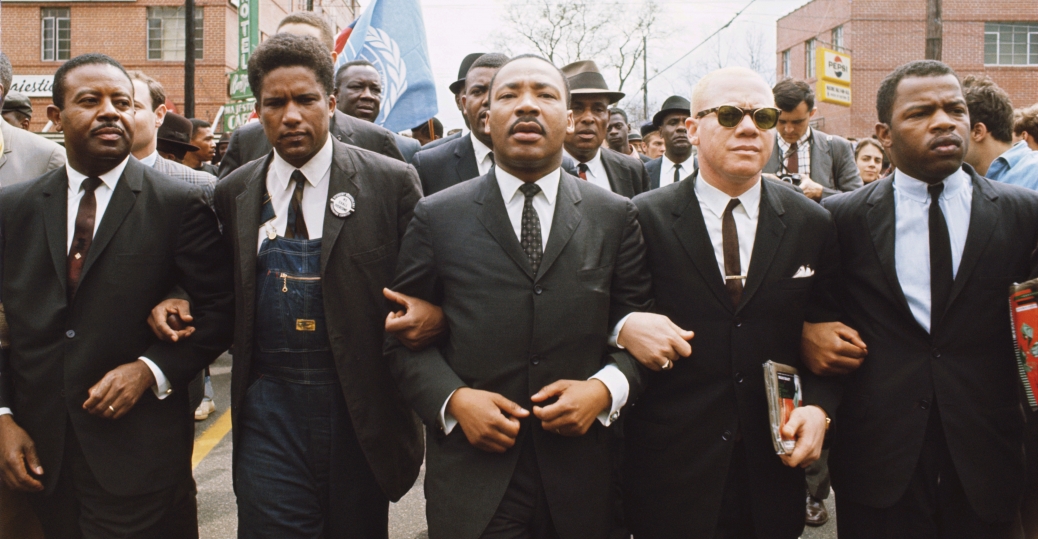


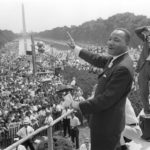
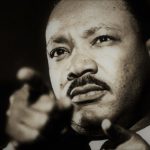
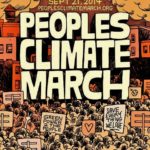
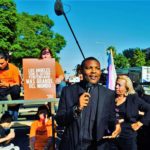






Pingback: Martin Luther King: Peace and Civil Rights Must Mix | WilderUtopia.com